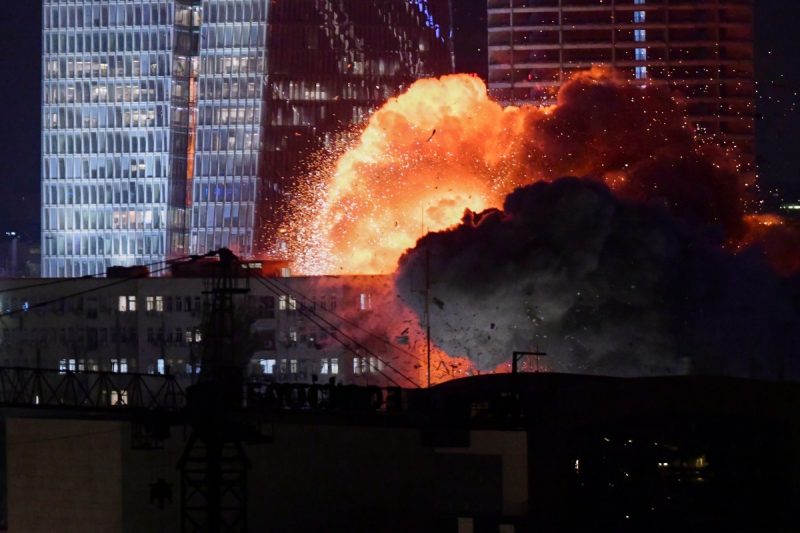
Following Friday’s devastating Israeli airstrikes targeting Iran’s nuclear and military infrastructure, Iran launched a retaliatory wave of ballistic missile attacks against Israel. The Israeli strikes, involving warplanes and drones reportedly smuggled into the country, aimed to cripple key Iranian facilities and eliminate high-ranking military officials and nuclear scientists. Israel justified the preemptive action as necessary to prevent Iran from developing a nuclear weapon, despite assessments from experts and the US government suggesting Iran was already actively pursuing such weaponry. The early morning raid resulted in at least 78 deaths and 320 injuries in Iran, according to the Iranian ambassador to the United Nations, with the exact breakdown of civilian and military casualties still unknown.
Explosions rocked two eastern Tehran neighborhoods shortly after 4 a.m. local time on Saturday, reported the semi-official Tasnim news agency, affiliated with the Islamic Revolutionary Guard Corps. Video footage circulated showing smoke billowing from buildings. This was swiftly followed by Iran’s missile response, which unleashed waves of ballistic missiles towards Israel. Explosions erupted across Jerusalem and Tel Aviv, shaking buildings in what appeared to be at least two separate volleys targeting at least seven locations across central Israel.
The Israeli military, already dealing with the shock of the initial attacks, urged civilians to seek shelter as missiles struck residential areas. At least two people were killed in these attacks and many more injured. Later in the morning, the IDF reported a fourth wave of missile launches, prompting further shelter-in-place orders across the country, particularly in northern regions. While the IDF intercepted some of the incoming missiles, others impacted across Israel, particularly in and around Tel Aviv. The attacks caused significant damage and further casualties.
Israeli Defense Minister Israel Katz stated that Iran had crossed a red line by targeting civilian populations, and vowed that Iranian leaders would pay a heavy price. Iran, in turn, promised a ‘crushing response’ and indicated that its attacks would escalate. International leaders from the Middle East and Europe have called for de-escalation, with UN Secretary-General António Guterres urging both sides to exercise maximum restraint. The situation remains extremely volatile, with the potential for further escalation and significant loss of life on both sides. The international community is watching with bated breath, hoping to prevent a wider regional conflict.










